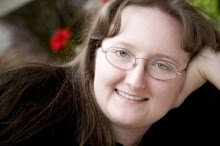The Foster Care Culture
 I am a member of a foster care site called Foster Club. Currently, they are holding an essay contest for current and former foster children about what it means to be part of the foster care culture. My submission is below. The deadline is November 21, so it may be a while before I hear how I did.
I am a member of a foster care site called Foster Club. Currently, they are holding an essay contest for current and former foster children about what it means to be part of the foster care culture. My submission is below. The deadline is November 21, so it may be a while before I hear how I did.From the day I entered care, being a foster kid meant missing school every other week to go to therapy. Sometimes kids asked if I had cancer because I went to "the doctor" so much. Conversely, I was told I could not go to court hearings because I had to go to school. One of the court hearings I was not allowed to attend was the termination hearing. Being a foster child can mean being told that a judge decided your parents are not your parents anymore and you were not allowed to say how you felt about it.
In grade school, being in foster care meant having friends who called my primary female caregiver "Mom," when I just called her by her first name. It also meant not knowing how to handle it when kids asked uncomfortable questions on the playground, and just going for shock value with my answers. Like many other foster kids, I was not sure where I would be in a year, or sometimes even a month. I can remember saying under my breath, "Hopefully," on the last day of school, when friends said, "See you next fall."
In junior high, being a foster child meant being asked how it is that I was completely white and my sister was a full-blood Sioux Indian. I think our answer was, "Different moms and not the same dad." It meant having lots of "siblings" from all of my past placements, but never getting to see them once I moved because nobody understood why I missed them, when they were not my "real" sibling. It was in junior high that I started to feel like I did not really belong. Sometimes I was included in family activities and sometimes my foster parents would leave me out or send me to respite. I never got too excited about anything because I never knew if I was "part of the family" when it came to that activity.
Being a foster child meant wondering, my senior year of high school, if I would still have a home the day after graduation (even though my foster parents said I would) and how I was going to be able to be an adult in such a short time when I still felt so much like a child. It meant holding on tighter to my high school days than most other kids because I was so afraid of what was to come when they ended.
As I talked to a fellow college student a year or two later, being a former foster kid meant realizing that the "welfare problem" he did not want to pay taxes for included feeding foster kids and paying for them to have a place to live. Being a former foster child meant not wanting to take "welfare" because I was trying so hard to break the cycle that landed me in care in the first place. I remember wondering if my scholarships counted as welfare.
Last year, being part of the foster care culture meant that when I took the training to become a foster parent, I caught mistakes in the information being taught to new foster parents. It meant having people in the class look at me differently than before, once I mentioned that I grew up in foster care. It also meant being one of the only people who had no trouble writing a letter to my future foster children because, having been a foster child, I knew exactly what questions they would have upon entering my home.
This summer, being a former foster child meant confusing guests at my wedding who were from nuclear families by introducing them to too many parents. I had two foster mothers, my birth mom and two foster fathers there, plus my new mother in-law. I also had two foster sisters there who did not know each other because they were from two different families. I have never met a non-foster kid who could introduce two of their sisters to each other for the first time at their wedding.
Years after aging out, being a former foster child still means being torn between loyalty to my birth family and accepting the love of another family, then feeling like a jerk regardless of what I choose. It means not knowing where I am "supposed to" spend Christmas, but feeling like I am betraying someone regardless of what I want to do.
Ultimately, being a foster child means seeing things through a different lens than the one other people use. It means having a heightened awareness of human nature, a greater capacity for compassion and a broader notion of family. It frequently means not having someone else's successful path to follow and having to blaze your own trail. Sometimes it means feeling most alone in a room full of people and least alone when reading the post of a stranger on a message board because they have been there too and they said something that made you realize you were not alone at all, but a part of a huge family of survivors who have a shared history of being in foster care.


0 Comments:
Post a Comment
<< Home